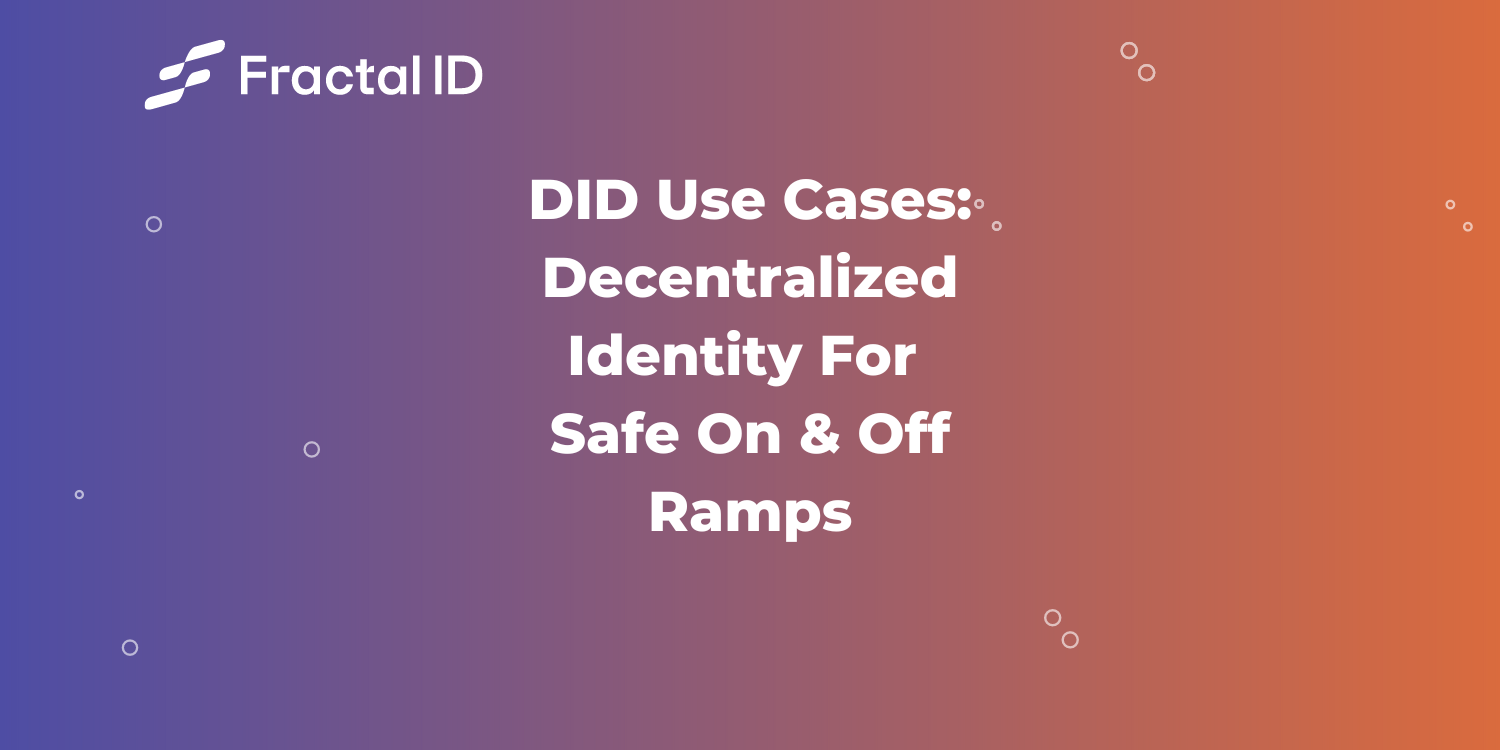On and off ramps, also known as crypto-to-fiat and fiat-to-crypto exchanges, are the first platforms that users visit to onboard into the crypto ecosystem. As these platforms advocate for decentralization and privacy, they may not require KYC for onboarding, making them quite attractive for criminals to cash in and cash out while maintaining anonymity. In turn, this makes these platforms vulnerable to regulatory lawsuits, compromising the sustainability of the platform and its users, and standing as an obstacle in the way of mass adoption.
Here we explore how on and off-ramps work, the challenges of anonymity and criminal activities on these platforms, and how decentralized identity can add a layer of security to on and off-ramps, establishing a balance between data privacy and platform security.
What are on and off-ramps in crypto?
On and off-ramping is the process of exchanging cryptocurrency with fiat currency and vice versa on certain exchange platforms that enable this service.
On Ramping is the process of exchanging fiat currency for cryptocurrency (e.g. you have 100 USD and exchange it for 100 USDT), whereas Off Ramping is the opposite process; exchanging cryptocurrency for fiat (e.g. you have 100 USDT and exchange it for 100 USD).
Ramping is considered the first step any user needs to take to start their cryptocurrency growth journey.
Why is identity important for on and off ramps?
Pseudo-anonymity is an attractive feature of web3 and DeFi as it promotes data privacy and enables underserved communities (e.g. with no passport or identification documents) to access services unavailable for them in traditional manners. However, a high level of anonymity isn’t always the way to go.
Research shows that criminals have been moving away from regulated exchange platforms and are increasingly laundering crypto assets through exchanges that do not require KYC. Following the FATF’s introduction of new crypto asset guidance in June 2019, illicit Bitcoin transfers to large reputable exchange platforms dropped significantly, while those to exchanges that don’t require KYC rose. (See Figure 1.)
This, and other illicit activities related to anonymity, have sparked efforts to regulate the activities of crypto asset service providers in order to better protect users. As a result, an identity layer is becoming more and more important to implement to protect on and off-ramp platforms from criminal activities and noncompliance vulnerabilities.
Implementing an identity layer for on and off-ramps introduces a significant increase in the platform’s security and safety for users.
If the identity verification solution leveraged on the platform is a type of decentralized solution such as decentralized identifiers and verifiable credentials, on and off-ramps will be able to bridge the gap between data privacy and data integrity.
On one hand, traditional KYC/AML ensures all users are uniquely identified humans and verifies that they are not sanctioned or subject to restrictive measures.
On the other hand, decentralized identity solutions are a more advanced identity verification means. They provide the benefits of traditional KYC, and further protect users’ data-sharing rights by empowering them to selectively disclose enough information to the platform (e.g. age, KYC/AML status) without needing to share unnecessary data with the platform (e.g. name, gender). (See Figure 2.)
See how only the KYC status is shared with the website/platform without any unnecessary information disclosed.
Fractal ID decentralized identity benefits for on and off-ramps
Fractal ID is an identity verification platform ranging from human uniqueness for sybil resistance to KYC/AML for regulatory compliance. Fractal ID offers a spectrum of identity verification solutions tailored to the needs of platforms, starting with traditional OAuth all the way toward decentralized identity.
On and off ramps that leverage Fractal ID solutions on their platforms can establish a safe growth environment for all their users, bridging the gap between privacy and compliance. This is done through:
- Ensuring compliance crypto regulations: DIDs provide platforms with an audit trail to track sources of transactions, and ensure all users are AML-compliant before jumping to the platform.
- Ensuring compliance with GDPR: Selectively disclosing user data (e.g. KYC/AML status) without sharing unnecessary information ensures data minimization and purpose limitation, and at the same time, ensures data integrity, as it’s verified data, and accountability on the platform.
- Establishing grounds for bot-free and sybil-resistant platforms: Having users uniquely identified humans before being onboarded to on and off-ramps significantly reduces the chance for bot or sybil attacks, enabling users to make better decisions knowing that their counterparties are legitimate users.
